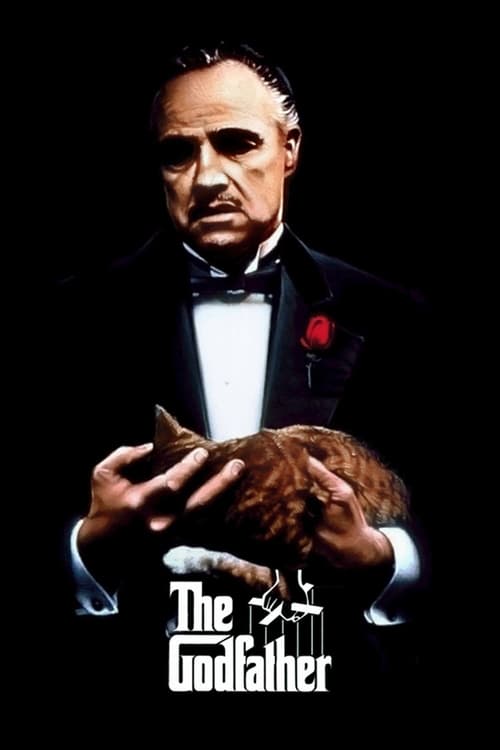
Title: The Godfather
Year: 1972
Director: Francis Ford Coppola
Writer: Francis Ford Coppola
Cast: Marlon Brando (Don Vito Corleone),
Al Pacino (Michael Corleone),
James Caan (Sonny Corleone),
Robert Duvall (Tom Hagen),
Richard S. Castellano (Clemenza),
Runtime: 175 min.
Synopsis: Spanning the years 1945 to 1955, a chronicle of the fictional Italian-American Corleone crime family. When organized crime family patriarch, Vito Corleone barely survives an attempt on his life, his youngest son, Michael steps in to take care of the would-be killers, launching a campaign of bloody revenge.
Rating: 8.687/10
I’m gonna make him an offer he can’t refuse." This single line encapsulates the chilling power and intricate world of "The Godfather.
/10
Posted on May 29, 2025
Francis Ford Coppola’s The Godfather isn’t just a gangster film; it’s an epic saga of family, power, tradition, and the corrupting influence of the American Dream. From the opulent wedding at the film’s opening to the brutal settling of scores, Coppola crafts a cinematic masterpiece that immerses us in the complex and often contradictory world of the Corleone family.
The film’s cinematography, masterfully handled by Gordon Willis, is iconic. The use of low-key lighting, often casting characters in shadow, creates a sense of both intimacy and menace. The rich, warm tones evoke a sense of old-world tradition, contrasting sharply with the violence and moral decay that permeates their lives. The framing and camera movements are deliberate and purposeful, drawing us into the emotional core of each scene and highlighting the power dynamics at play.
The acting performances are legendary. Marlon Brando’s portrayal of Vito Corleone is a masterclass in understated power. His gravelly voice, his subtle gestures, and his piercing gaze create a figure both terrifying and strangely paternal. Al Pacino’s transformation as Michael Corleone, from reluctant outsider to ruthless Don, is one of the most compelling character arcs in cinematic history. His quiet intensity and gradual descent into darkness are mesmerizing. The supporting cast, including James Caan as the volatile Sonny, Robert Duvall as the consigliere Tom Hagen, and Diane Keaton as Michael’s naive wife Kay Adams, all deliver unforgettable performances that enrich the film’s tapestry.
The setting, primarily 1940s and 50s New York, is meticulously recreated. From the grandeur of the Corleone estate to the smoky backrooms where deals are struck, the film’s locations feel authentic and lived-in, contributing to the immersive atmosphere. The costumes, from the sharp suits of the men to the elegant dresses of the women, further enhance the film’s period detail and the characters’ status.
Nino Rota’s film score is instantly recognizable and deeply evocative. The haunting melodies and swelling orchestrations perfectly capture the film’s themes of family loyalty, power, and loss. The music underscores the emotional weight of each scene, from moments of tenderness to acts of brutal violence, becoming an inseparable part of the film’s identity.
The screenplay, co-written by Coppola and Mario Puzo (based on Puzo’s novel), is a triumph of storytelling. It expertly balances the intricate plot with deep character development, exploring the motivations and internal conflicts of each family member. The dialogue is sharp, memorable, and often carries layers of subtext. The film delves into the complexities of family loyalty versus personal morality, the allure and cost of power, and the immigrant experience in America.
The Godfather is more than just a crime film; it’s a timeless exploration of the American dream gone awry, the seductive nature of power, and the enduring bonds and betrayals within a family. Its impact on cinema is undeniable, influencing countless films and solidifying its place as one of the greatest movies ever made. It’s a film that demands to be seen and appreciated for its artistry, its performances, and its enduring themes.
0
0
